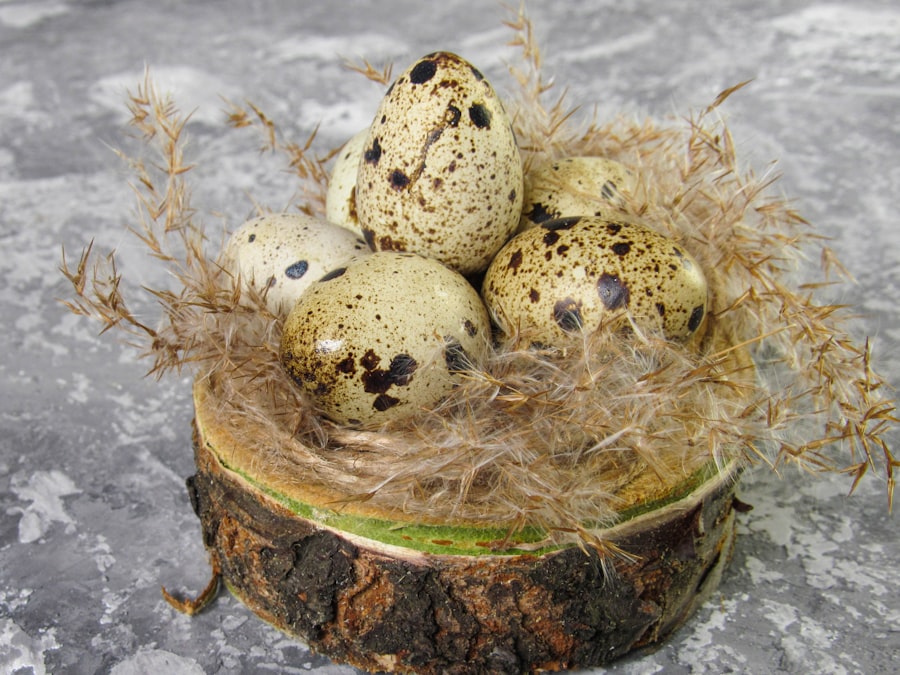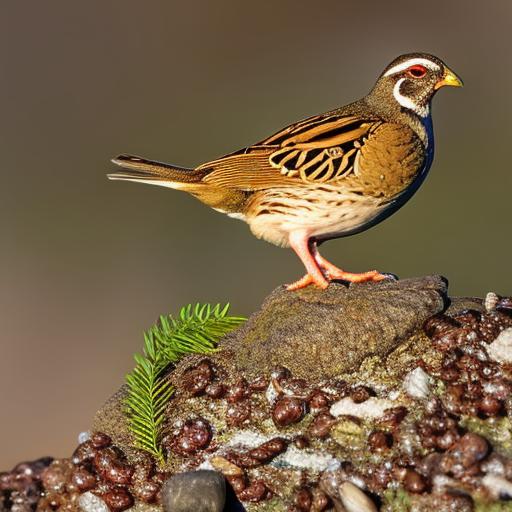Quail farming is a lucrative and rewarding venture that has gained popularity in recent years. Quails are small, ground-dwelling birds that are known for their delicious eggs and tender meat. They are relatively easy to raise and require minimal space, making them an ideal choice for small-scale farmers and backyard enthusiasts. Quail farming can be a profitable business, as quail eggs and meat are in high demand due to their nutritional value and unique flavor. Additionally, quails are prolific layers, making them a sustainable source of income for farmers.
Quail farming can be a great addition to an existing farm or a standalone enterprise. With the right knowledge and resources, anyone can start a successful quail farm. This article will provide an in-depth guide to quail farming, covering everything from selecting the right breed to housing and feeding, collecting and using quail eggs, raising quail for meat, and health and safety considerations. By the end of this article, readers will have a comprehensive understanding of quail farming and be equipped with the necessary information to start their own quail farm.
Key Takeaways
- Quail farming is a profitable and sustainable agricultural venture that can be done on a small scale.
- When selecting the right quail breed, consider factors such as egg production, meat quality, and adaptability to your local climate.
- Proper housing and feeding are essential for the health and productivity of quail, including providing adequate space, ventilation, and a balanced diet.
- Quail eggs are nutritious and can be used for cooking, baking, and even hatching new quail chicks.
- Raising quail for meat requires humane and efficient processing methods, as well as attention to the quality and flavor of the meat.
- Health and safety considerations for quail farming include disease prevention, biosecurity measures, and safe handling of quail and their products.
- In conclusion, successful quail farming requires attention to detail, regular monitoring of the flock, and a commitment to providing the best care for the quail.
Selecting the Right Quail Breed
When starting a quail farm, it is essential to select the right breed of quail for your specific needs and goals. There are several different breeds of quail, each with its own unique characteristics and advantages. The most common breeds of quail for farming purposes include the Coturnix (Japanese) quail, Bobwhite quail, and California quail.
The Coturnix quail is the most popular choice for farmers due to its high egg production, fast growth rate, and docile nature. They come in various color variations and are well-suited for both egg and meat production. Bobwhite quail are known for their excellent meat quality and are often raised for hunting purposes as well. California quail, on the other hand, are primarily raised for their ornamental value and are not as commonly used for commercial farming. When selecting a quail breed, it is important to consider factors such as egg production, meat quality, temperament, and adaptability to your specific climate and environment.
In addition to choosing the right breed, it is also important to source healthy and high-quality birds from reputable breeders or hatcheries. This will ensure that your quail farm starts off on the right foot and sets the stage for a successful and thriving operation.
Housing and Feeding Quail
Proper housing and feeding are crucial aspects of quail farming that directly impact the health and productivity of the birds. Quails are relatively small birds that require minimal space compared to other poultry, making them an ideal choice for farmers with limited land or backyard enthusiasts. When it comes to housing, quails can be kept in cages or aviaries, with each bird requiring approximately 1 square foot of space. The housing should be well-ventilated, predator-proof, and equipped with nesting boxes for egg-laying quails.
Quails are omnivorous birds that require a balanced diet to thrive. A commercial quail feed that is high in protein (20-25%) is essential for optimal growth and egg production. In addition to commercial feed, quails can also be supplemented with fresh greens, grains, and mealworms to provide variety and additional nutrients. It is important to provide clean water at all times, as quails have high water requirements, especially during egg production.
Proper management of housing and feeding is essential for the overall success of a quail farm. By providing a suitable living environment and a nutritious diet, farmers can ensure that their quails remain healthy, productive, and profitable.
Collecting and Using Quail Eggs
Quail eggs are highly prized for their nutritional value, delicate flavor, and small size. They are rich in protein, vitamins, and minerals, making them a popular choice for health-conscious consumers and gourmet chefs alike. Collecting quail eggs is a straightforward process that can be done daily once the birds start laying, which typically occurs at around 6-8 weeks of age. Quails are prolific layers, with each bird capable of laying up to 300 eggs per year under optimal conditions.
Once collected, quail eggs can be used in a variety of culinary applications, including omelets, salads, pickling, and baking. They can also be sold fresh or used to produce value-added products such as pickled eggs or salt-cured yolks. Quail eggs have a longer shelf life than chicken eggs and can be stored in the refrigerator for up to 2-3 weeks.
In addition to their culinary uses, quail eggs are also sought after for their medicinal properties in some cultures. They are believed to have various health benefits, including improving immunity, boosting energy levels, and promoting healthy skin. As a result, there is a growing market for quail eggs in the health and wellness industry.
Raising Quail for Meat
In addition to their eggs, quails are also raised for their tender and flavorful meat. Quail meat is lean, high in protein, and has a delicate taste that sets it apart from other poultry meats. It is often compared to chicken or game birds such as pheasant or partridge. Raising quails for meat production requires careful management of feeding, housing, and processing to ensure a high-quality end product.
Quails reach market weight at around 6-8 weeks of age and can be processed either on-farm or at a local abattoir. The meat can be sold fresh or used to produce value-added products such as sausages, pâtés, or smoked meats. Quail meat is popular in gourmet restaurants and specialty food markets due to its unique flavor and versatility in cooking.
When raising quails for meat production, it is important to prioritize animal welfare and humane handling practices. Providing a stress-free environment, access to clean water and feed, and proper handling during processing are all essential factors that contribute to the quality of the meat.
Health and Safety Considerations for Quail Farming

Maintaining the health and safety of quails is paramount for the success of a quail farm. Like all livestock, quails are susceptible to various diseases and parasites that can impact their well-being and productivity. It is important for farmers to implement biosecurity measures to prevent the introduction and spread of diseases within their flock.
Regular health checks, vaccination programs (if necessary), and proper sanitation practices are essential components of disease prevention in quail farming. Additionally, farmers should be vigilant for signs of illness or distress in their birds and seek veterinary assistance when needed.
In terms of safety considerations, farmers should ensure that their housing facilities are secure from predators such as rats, snakes, and birds of prey. Proper handling techniques should also be followed to minimize stress on the birds and reduce the risk of injury to both the birds and the farmer.
Furthermore, farmers should be aware of any regulations or permits required for quail farming in their area, as well as any food safety standards that apply to the production and sale of quail products.
Conclusion and Tips for Successful Quail Farming
In conclusion, quail farming is a rewarding venture that offers opportunities for both egg and meat production. By selecting the right breed, providing proper housing and feeding, collecting and using quail eggs effectively, raising quails for meat with care, and prioritizing health and safety considerations, farmers can establish a successful quail farm.
Some additional tips for successful quail farming include conducting thorough research before starting a farm, seeking advice from experienced farmers or industry professionals, investing in quality equipment and infrastructure, staying informed about market trends and consumer preferences, and continuously learning about best practices in quail husbandry.
With dedication, hard work, and a passion for raising healthy birds, anyone can enjoy the benefits of quail farming as a profitable business or a fulfilling hobby.
If you’re interested in raising quail for eggs and meat, you might also want to check out this insightful article on creating a chicken coop with a trampoline floor. It’s a fascinating read that offers innovative ideas for improving your poultry housing. You can find it here.
FAQs
What are the benefits of keeping quail for eggs and meat?
Quail are known for their small size, fast growth, and high egg production, making them a great option for those looking to raise their own eggs and meat. Quail eggs are also considered a delicacy and are known for their rich flavor and high nutritional value.
What do quail need in terms of housing and space?
Quail require a secure and well-ventilated housing to protect them from predators and the elements. They also need enough space to move around comfortably, with about 1 square foot of space per bird being recommended.
What do quail eat and how often do they need to be fed?
Quail are omnivores and can be fed a diet of commercial quail feed, supplemented with fresh greens, fruits, and insects. They should be fed daily, with access to clean water at all times.
How do you care for quail to ensure their health and well-being?
Quail require regular cleaning of their housing, as well as monitoring for any signs of illness or injury. They also need protection from extreme temperatures and proper handling to minimize stress.
At what age do quail start laying eggs and how long do they continue to lay?
Quail typically start laying eggs at around 6-8 weeks of age and can continue to lay for 2-3 years, with peak production occurring in the first year.
What is the process for harvesting quail for meat?
Quail can be harvested for meat at around 6-8 weeks of age, when they reach a desirable size. They can be humanely slaughtered and processed for meat, which is known for its tender texture and rich flavor.
Meet Walter, the feathered-friend fanatic of Florida! Nestled in the sunshine state, Walter struts through life with his feathered companions, clucking his way to happiness. With a coop that’s fancier than a five-star hotel, he’s the Don Juan of the chicken world. When he’s not teaching his hens to do the cha-cha, you’ll find him in a heated debate with his prized rooster, Sir Clucks-a-Lot. Walter’s poultry passion is no yolk; he’s the sunny-side-up guy you never knew you needed in your flock of friends!







